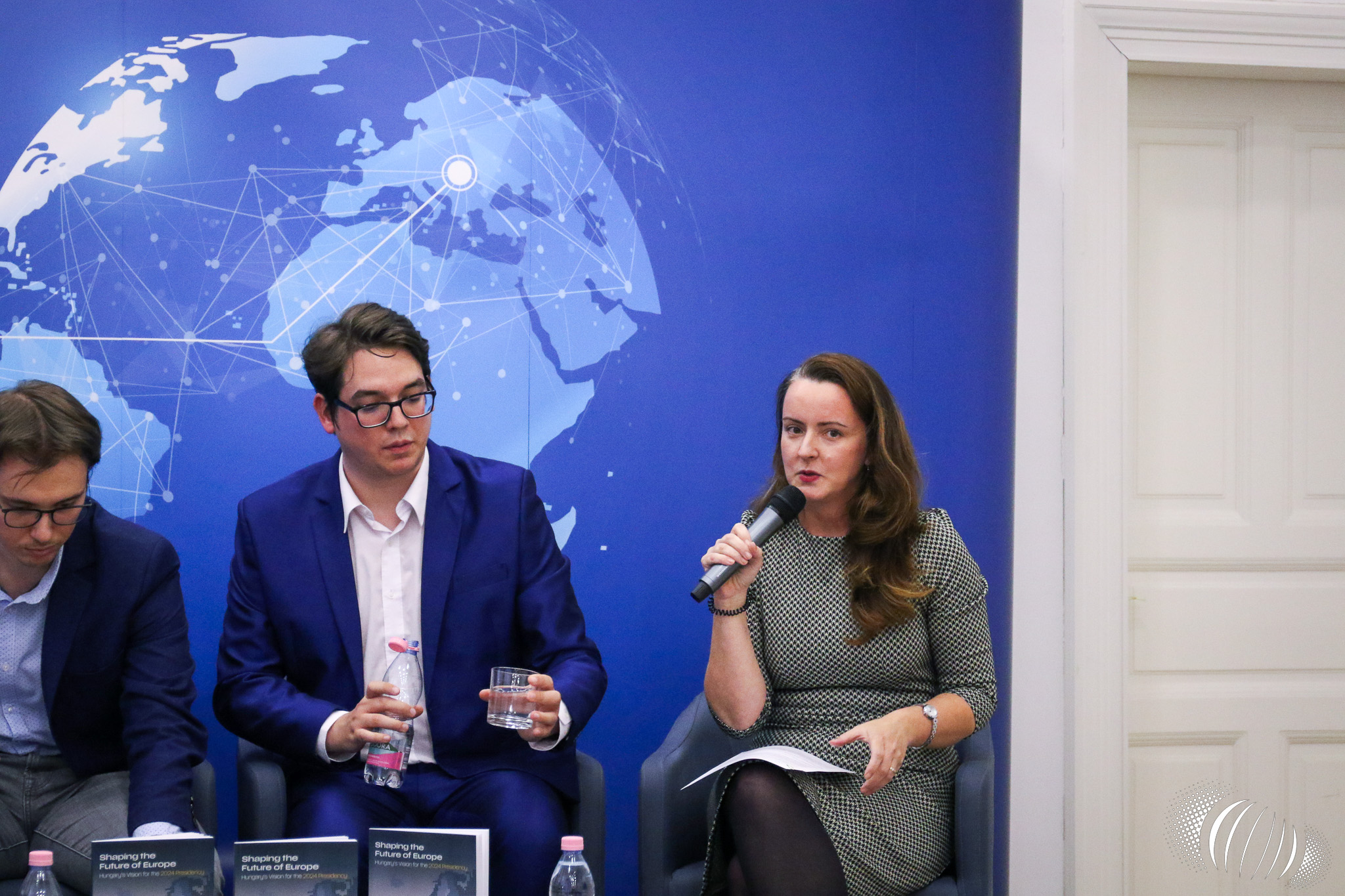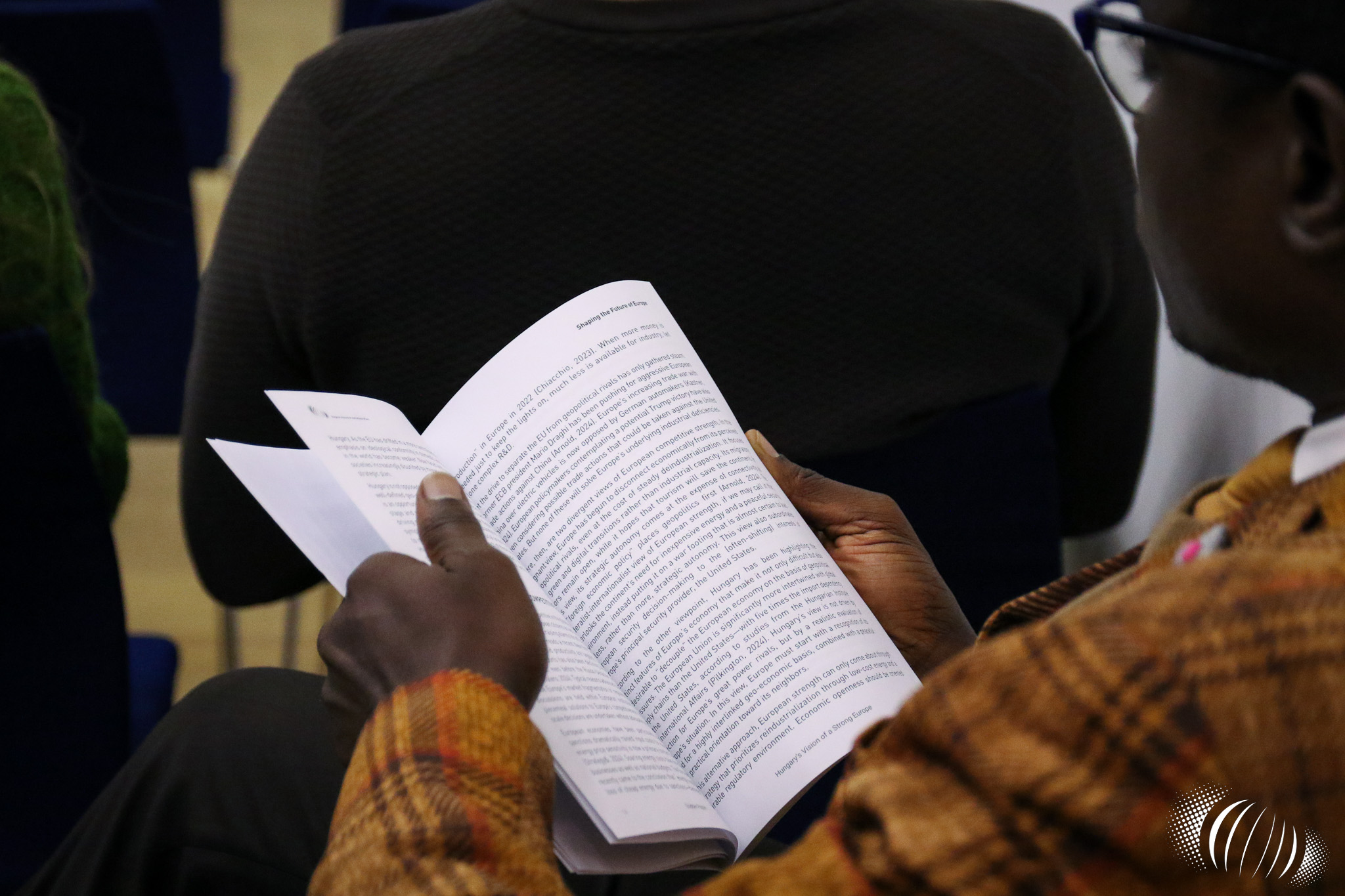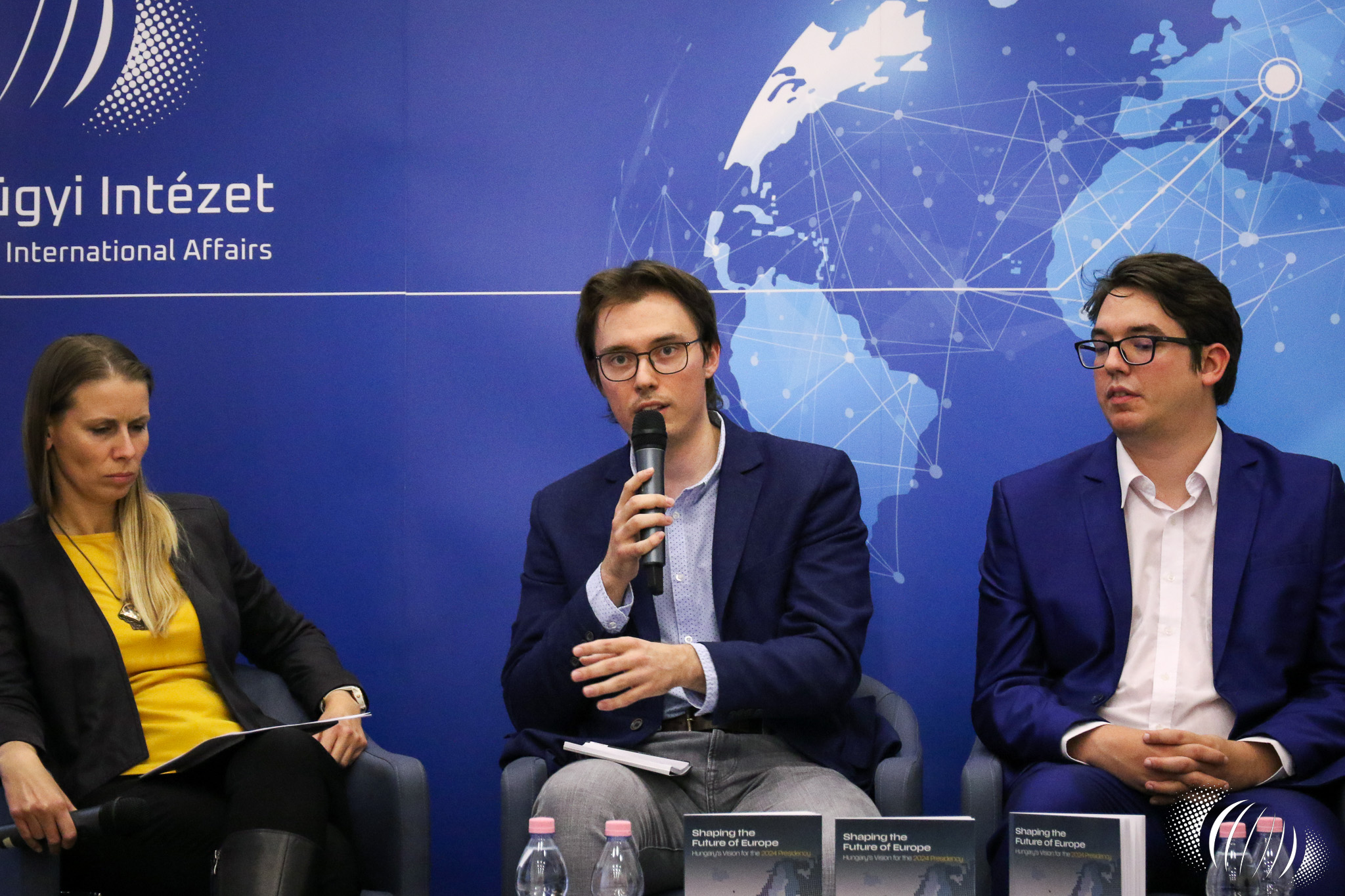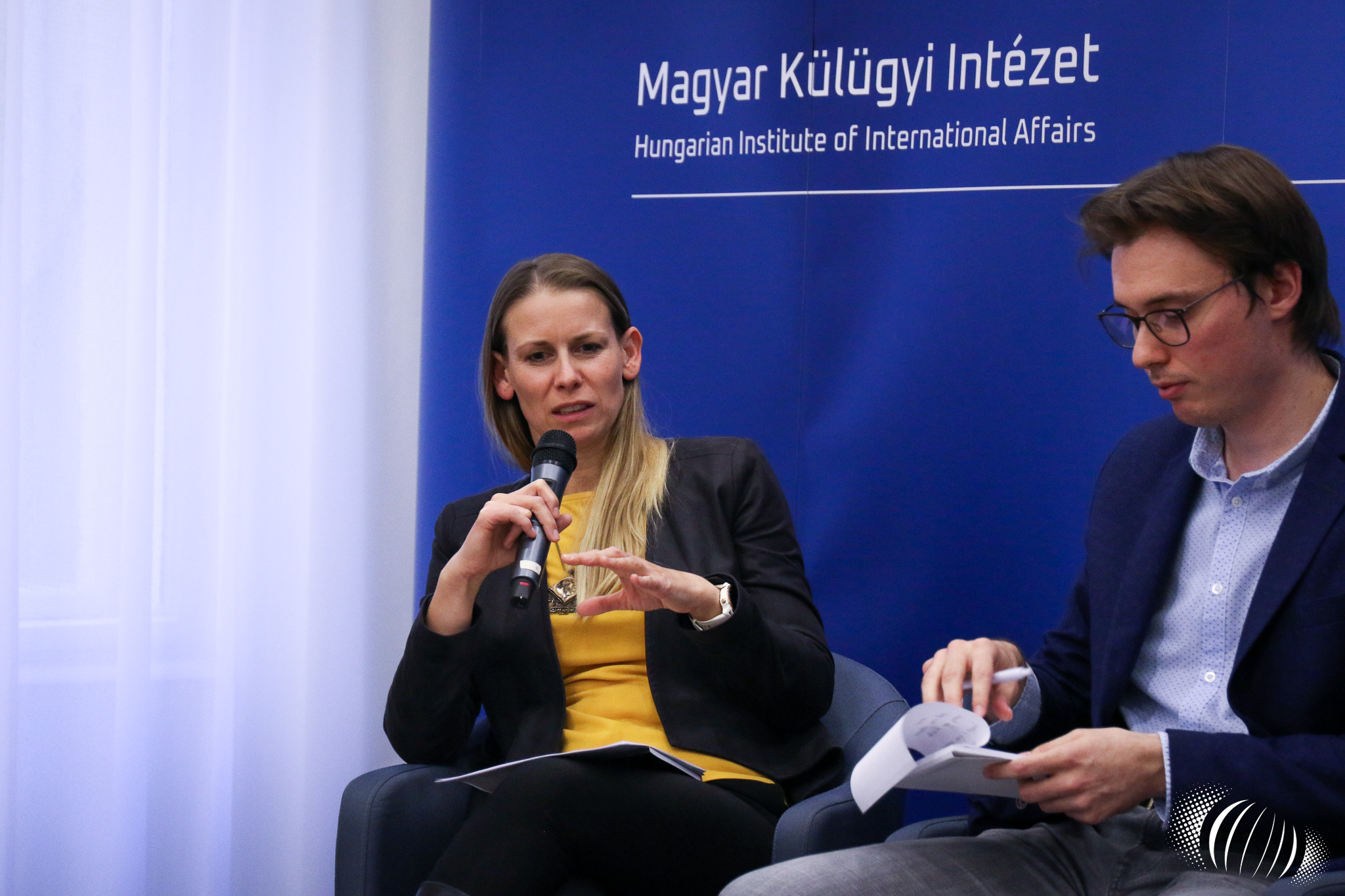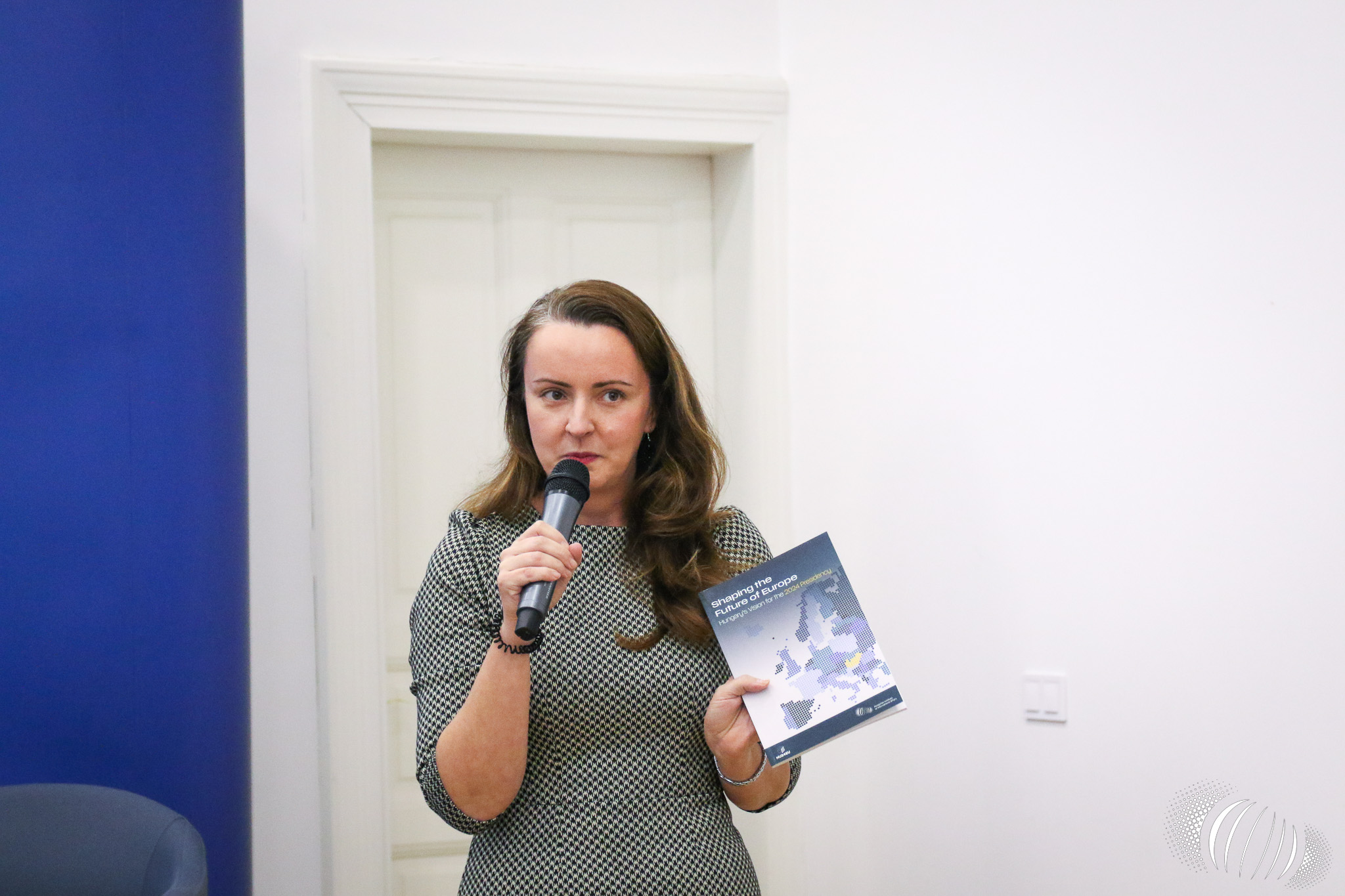On 21 October 2024, the Hungarian Institute of International Affairs (HIIA) held a roundtable discussion entitled “Has Central Europe’s Position on Immigration Been Vindicated? A Paradigm Shift in EU Migration Policy”.
On the occasion of the discussion, HIIA’s new handbook, Shaping the Future of Europe – Hungary’s Vision for the 2024 Presidency, was introduced, which presents Europe’s current challenges through the priorities of the Hungarian EU presidency. The handbook is primarily intended for an audience that does not speak Hungarian but is interested in Hungary’s EU presidency, offering them an introduction to the main priorities of the presidency period in the second half of 2024. Following the introduction from Gladden Pappin, President of the Institute, seven chapters authored by current and former colleagues of the Institute focus on key policy areas such as competitiveness, defense policy, enlargement policy, and migration.
The discussion was moderated by Ágnes Vass, Research Director, and the participants were Árpád Párducz, Researcher at the Migration Research Institute, as well as Anna Orosz and Csaba Stefán, Research Fellows of the Hungarian Institute of International Affairs.
The topic was linked to last week’s EU summit, where migration was an important item on the agenda. Árpád Párducz said that the migration problem has been ongoing in Europe since the 2015 migration crisis. The EU needs to create a pan-European action plan to tackle it, because single countries are not able to deal with the situation comprehensively. Csaba Stefán added that we have now reached a pendulum threshold, which has led to a paradigm shift. The migration pact adopted in the EU was adopted at the very threshold of the paradigm shift, which has since led to several countries (e.g. Hungary, Poland) indicating that they are not satisfied with it. Anna Orosz spoke about the Albanian dimension, referring to the Italian-Albanian asylum agreement, which shows a preference for bilateral problem-solving rather than EU-level management.
The participants spoke about the EU’s migration agreements with Tunisia, Egypt and Sudan, which could be key gate-keeper states in intercepting and keeping asylum seekers at home. It was agreed that the most effective way to reduce migration is to intercept migrants before they enter the EU.
The discussion at one point specifically covered Central European countries, which, although open to community-wide problem-solving, have an important dividing line with Mediterranean countries. While the former would focus on the protection of external borders, the latter would push for a community-wide distribution of asylum seekers, which is also included in the migration pact. It is not easy to find a compromise between the two positions, although more flexible rules might help.
The European Parliamentary elections, and some national elections, have shown that migration is becoming an increasingly important campaign issue, while also becoming a security issue alongside whipping up anti-migration sentiments. The leaders of many countries are now touting the Hungarian government’s 2015 agenda, which has remained largely unchanged since then. Hungary can help these countries by advocating different policy alternatives during its EU Presidency, including by building new ad hoc coalitions. The alternatives’ main elements focus on the external dimension of migration: strengthening border protection and setting up asylum centres outside EU borders. The Balkan countries can also help with this: in addition to the Albanian-Italian pact, Kosovo and Serbia have been discussed as temporary host countries for asylum seekers, although Anna Orosz says that the potential for this is not particularly high, also for internal political reasons.
It was said that in Germany Willkommenskultur, which only really became dominant in the 2000s, has failed, with the ailing coalition government introducing border controls along the entire German border. With the rise of radical parties, even moderates have realised that the culture of welcome, which was maintained to address the demographic crisis and labour shortages, has become politically untenable.
In the context of the upcoming Hungary-Serbia-Slovakia migration summit, the migration problems of the region were also discussed. Serbia was hit by the migration crisis in 2015, and Hungary has been supporting it since then in the framework of a police cooperation, and together with Austria the three countries have their own forum for dealing with illegal migration. This has also helped to shift migration routes from the country towards Bosnia and Herzegovina. Serbia therefore has an interest in strengthening the protection of the EU’s external borders. Croatia, on the other hand, has become overwhelmed by the increased migratory transit traffic through Bosnia, while the Croats have established police-security cooperation with Slovenia and Italy to address the situation.

